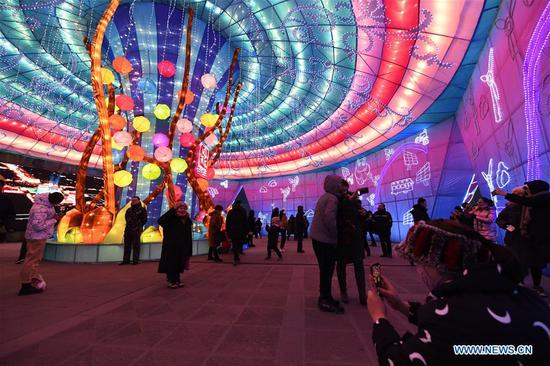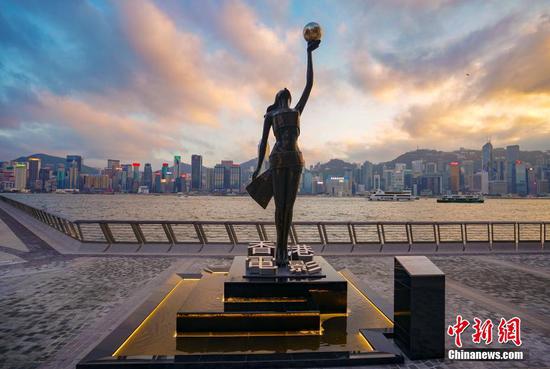China's cruise industry is undergoing a transition from rapid expansion to quality development against the background of a slowing national economy.
As a result, foreign operators with more financial strength have started to launch more localized products to gain opportunities in the future.
Also, more local operators are planning to join the game.
It only took 12 years for China's cruise business to grow into the world's second-largest from nothing.
However, for the first time, the market saw declines in terms of passengers and ships in 2018.
A total of 969 cruises stopped at China's 13 ports in 2018, a 17.95-percent drop year-on-year. The number of cruise passengers fell 0.98 percent to 4,906,583, according to the China Cruise & Yacht Industry Association and the China Ports and Harbours Association.
These declines show the industry has entered an adjustment period after years of high-speed expansion. This is mainly because the development of sales and promotion channels have lagged behind the fast increase of operators, said analysts.
"The market has entered a transition from high-speed expansion to quality development," Ye Xinliang, deputy general manager of Wusongkou International Cruise Terminal Development Co in Shanghai, told the Global Times on Thursday.
"The major reason for the decline is a lack of qualified salesmen to promote many products and services that rapidly entered the China market in a short time," said Cheng Juehao, deputy chief of the Shanghai International Shipping Institute Cruise Economy Research Center.
As some foreign operators are leaving the market amid the transition, those with stronger financial power are adding or upgrading cruises with more localized services and quality products to bet on the future.
Costa Cruise, an Italian cruise operator that entered the market in 2006, plans to launch the Costa Venezia, its first ship specifically built for the China market, in 2019.
The ship was "designed with the specific leisure and entertainment preferences of Chinese guests in mind," a statement from Costa's owner, Carnival Corp, said.
Spectrum of the Seas, the first Quantum Ultra Class cruise of Royal Caribbean, is scheduled to jump into the Chinese market in 2019. At least two more Chinese-oriented cruises are expected to be put into the market in 2019.
Mario Zanetti, president of Costa Group Asia, told the Global Times on Thursday that "the slowing down of growth in the cruise industry is just a temporary situation."
It demonstrates that the cruise industry in China has entered an adjustment period, which is beneficial to the sustainable development of the whole market in the long term. Compared with the mature overseas cruise market, China's cruise market started late and developed in a short time, according to Zanetti. It remains in the exploration and adjustment period, but it has promising potential in the coming years.
China's cruise business is still in the launch phase and it will take off in the future, which is in line with the nation's economic development, Ye said. Chinese tourists have strong purchasing power, and Ye expects to see more growth in the future.
In 2018, the number of Chinese outbound tourists reached 148 million, an increase of more than 13 percent year-on-year. Consumer spending exceeded $120 billion. According to Cruise Industry News, an independent research institute for the cruise industry, by 2024 the Chinese cruise market is likely to cater to 5.6 million local passengers.


















































